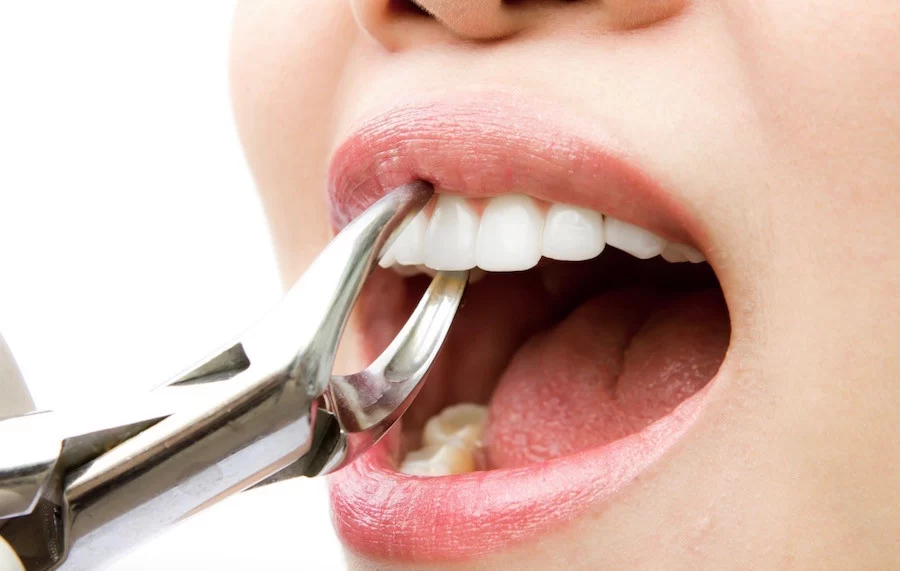
What to Do if You Lose a Tooth and How to Preserve It
- 1. Preserve the Tooth Immediately
- 2. Visit a Dentist as Soon as Possible
- 3. What to Do While Waiting for Dental Assistance
- 4. Why Time is Crucial in Tooth Preservation
Accidents happen, and it’s one of those moments that nobody ever expects—losing a tooth. Whether it's a sports injury, a fall, or an accident, one of the first things that go through your mind is "What should I do now?" Losing a tooth can be a shocking experience, but there are important steps you can take to preserve the tooth and increase the chances of saving it. Over the years, I've experienced a dental emergency of my own, and through the advice of professionals and personal learning, I now know exactly what to do in case of tooth loss. If you've recently lost a tooth or are just looking to be prepared for such an incident, keep reading to learn how to handle this type of emergency.
1. Preserve the Tooth Immediately
The first and most crucial step when you lose a tooth is to try and preserve it. If you find the tooth, pick it up by the crown (the top part, not the root) to avoid damaging the delicate cells at the root. My first instinct, when I lost a tooth, was to panic. However, the quicker you act, the better the chance you have to save the tooth. If you can, gently rinse the tooth with water to remove any dirt, but do not scrub or use soap, as this can harm the tissue that is necessary for reattachment.
Once you've cleaned the tooth, the next step is to keep it moist. This is essential to prevent the tooth from drying out, which will reduce its chances of being successfully re-implanted later. One method I’ve found most effective is to place the tooth in a small container with milk. Milk helps preserve the tooth's tissue and is a great option if you're in a hurry. If milk is unavailable, you can also use saline solution or even water in an emergency, but milk is the best choice.
2. Visit a Dentist as Soon as Possible
Time is of the essence when you lose a tooth, and you need to act fast. Ideally, you should get to a dentist within 30 minutes of the injury. When I lost my tooth, I rushed straight to the dentist’s office. The quicker you can get professional help, the better your chances are of saving the tooth. Most dentists will do everything possible to re-implant the tooth if it's still viable.
If your dentist is unavailable or you're too far away from a dental office, you may need to call an emergency dental service or visit the emergency room. Many dental clinics offer after-hours emergency care for situations like tooth loss. Even if you're unsure, getting checked by a dental professional as soon as possible is always better than waiting too long.
3. What to Do While Waiting for Dental Assistance
While you wait for dental assistance to arrive, it's important to remain calm and avoid doing anything that could cause further damage. If the tooth is in pain, you can take over-the-counter pain relief medication, like ibuprofen, but avoid placing aspirin directly on the gum or the tooth, as this can cause irritation. I remember the pain being unbearable when I lost my tooth, so I made sure to manage it until I got the help I needed.
Additionally, avoid trying to reinsert the tooth back into its socket, especially if you're unsure how to do it. This can cause more harm than good, especially if done incorrectly. Instead, focus on keeping the tooth safe and moist, and get to your dentist as soon as possible. This period can feel like an eternity, but knowing what steps to take can help ease the stress.
4. Why Time is Crucial in Tooth Preservation
After experiencing this dental emergency myself and speaking to several professionals, I learned that time truly is one of the most important factors in preserving a lost tooth. The longer a tooth is out of its socket, the lower the chances are of it being successfully re-implanted. Ideally, if you act within the first 30 minutes to an hour, there's a higher chance of saving the tooth. After about an hour, the cells in the tooth root begin to die, which makes it increasingly difficult for the dentist to reattach it.
From what I learned, if you can’t get to a dentist immediately, it’s best to preserve the tooth in a suitable medium (like milk or saline) to keep it viable as long as possible. However, even after an hour, all hope isn’t lost, and a dental professional can sometimes still save the tooth if it's treated properly. It's important to stay hopeful and not give up. The quicker you react, the better your chances are.
If you're interested in learning more about how to handle dental emergencies like tooth loss or need immediate dental help, I highly recommend checking out Dentistry Toothtruth for expert advice and services. They provide detailed guides and emergency care tips, so you can always feel prepared and confident in case of a dental emergency.







 Family Dentistry of Lakewood4.0 (321 review)
Family Dentistry of Lakewood4.0 (321 review) Emergency Dentist 24/7 Downingtown1.0 (1 review)
Emergency Dentist 24/7 Downingtown1.0 (1 review) Northside Dental Clinic4.0 (281 review)
Northside Dental Clinic4.0 (281 review) Premier Orthodontics4.0 (227 review)
Premier Orthodontics4.0 (227 review) DentFirst Dental Care McDonough4.0 (534 review)
DentFirst Dental Care McDonough4.0 (534 review) Aspen Dental - Warwick, RI4.0 (600 review)
Aspen Dental - Warwick, RI4.0 (600 review) The Importance of Oral Health Education During Pregnancy for a Healthy Pregnancy
The Importance of Oral Health Education During Pregnancy for a Healthy Pregnancy Best Tips for Brushing Your Teeth Properly for Healthy Gums: Essential Techniques for Oral Health
Best Tips for Brushing Your Teeth Properly for Healthy Gums: Essential Techniques for Oral Health Why Skipping Dental Checkups Can Lead to Bigger Oral Health Problems
Why Skipping Dental Checkups Can Lead to Bigger Oral Health Problems Advantages of Porcelain Dental Restorations
Advantages of Porcelain Dental Restorations How Can Diabetes Cause Tooth and Gum Problems? Preventing and Managing Oral Health Issues
How Can Diabetes Cause Tooth and Gum Problems? Preventing and Managing Oral Health Issues Healthy Habits for Promoting Good Oral Health and Hygiene: Tips for a Healthy Smile
Healthy Habits for Promoting Good Oral Health and Hygiene: Tips for a Healthy Smile